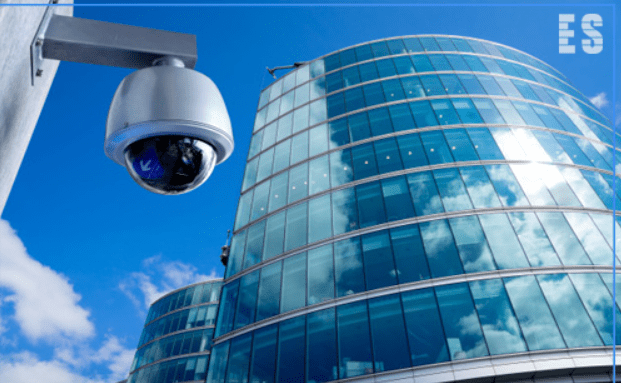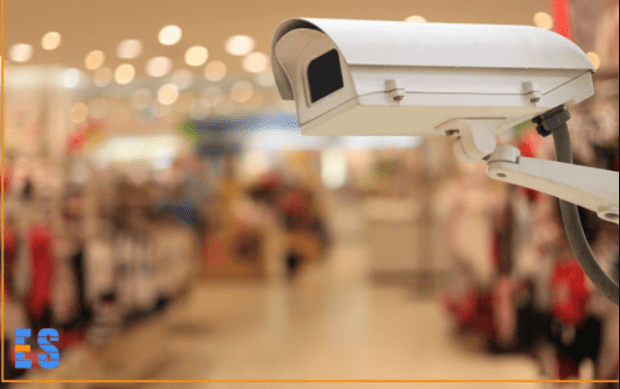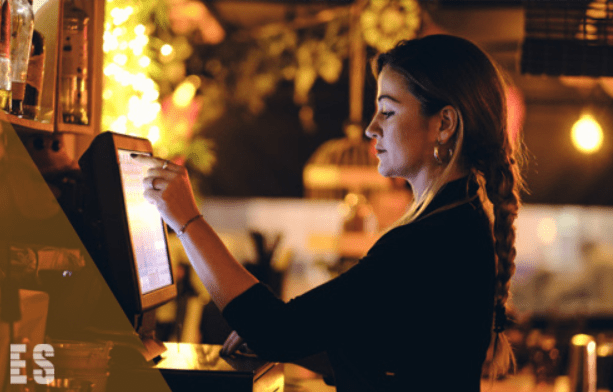We are so used to the use of technology that many times we do not stop to think about the consequences that its use can have. However, more and more people are beginning to wonder if the use of security cameras at work is legal. Therefore, we are going to analyze this issue in more detail.
Current framework of security cameras at work
There are many workplaces that already have a recording system, especially if they are establishments open to the public.
If we go to any supermarket we will see a sign on the door that warns us that while we remain in their facilities we will be recorded. These cameras capture our image and, logically, also that of the employees.
It is usual to use cameras that only capture video, but what happens if they also capture sound? Is using cameras with audio at work legal? The truth is that the legislation is somewhat confusing on this subject.

Is it legal to install security cameras safety at work?
Data protection legislation has come a long way at a European and national level with the entry into force of the GDPR and the new Data Protection Law, but we still don't have a regulation that affirms emphatically whether the use of cameras at work is legal or illegal.
This is what is known as labor video surveillance . This may involve capturing the image of the workers or the image accompanied by audio.
Legislation and jurisprudence agree that digitally captured images are personal data. With this you can get used to the idea that the use of cameras at work, like the cameras in schools, it is legal only in certain cases and meeting certain requirements:
- Images must only be taken for one of the purposes provided for in the Workers' Statute, generally to improve safety and for issues associated with labor control.
- The principle of proportionality must be respected in all cases. This implies that if there are less harmful measures to achieve the same objective, those that may least violate privacy should be used.
- You must always take into account the rights of workers and not film in off-limits spaces, such as a changing room.
- It is essential to respect the right to information, warning that images are being captured.
- It will be necessary to carry out a risk analysis and include these images in the Record of treatment activities.
- Images will be deleted within a maximum period of 30 days.
- The rights of access and cancellation will be guaranteed.
Who can see security camera recordings at work?
Now that we are clear that a recording is personal data, it is clear that not everyone can access the images.
Access is only allowed to the owner of the company and security personnel. In fact, the recording and viewing rooms must have restricted access so that unauthorized persons cannot enter.

What kind of cameras is legal instalarm to watch at work?
The choice of device is based on what you specifically want to monitor. In certain situations, static cameras that focus on a fixed point are preferred, while in other circumstances it is more convenient to select cameras that can rotate a full 360º.
The equipment is usually placed discreetly, not necessarily to hide it, but to prevent the employee from feeling harassed or excessively monitored by the device.
Hidden video-surveillance cameras
Here we must distinguish two assumptions. The first is the one we have just mentioned, installing the camera in such a way that it goes as unnoticed as possible so as not to not disturb or intimidate employees. This is perfectly legal.
Very different is the case of the installation of authentic stealth or spy cameras. As we have seen before, the use of security cameras at work is legal if those affected have proof that a recording is being made. Otherwise, the recording will not be legal and cannot be used as evidence.
Security cameras with audio and sound
It's understandable that cameras film us during our workday, but can they also record sound?
The use of cameras that record audio at work is controversial. The main concern is the invasion of the employee's privacy. By recording conversations, content is captured that, on many occasions, is not linked to the workplace.
Using cameras that record audio at work is generally considered illegal as an infringement of the right to personal privacy. However, an exception would be if a judge has specifically authorized such recording in the context of a criminal investigation.

Do they have to be see the cameras or can they be hidden?
As we pointed out before, the camera can be in a perfectly visible place or it can be installed in a way that is more inconspicuous. In most cases, a professional installation is chosen, which manages to turn the recording circuit into one more element, without the camera being visible to the naked eye.
It is a hidden camera, but in no case a spy camera, since the worker will know it is there.
Is employee consent required? employees to install them?
According to the latest legislative changes after the entry into force of the GDPR, for someone to capture our image while we are working we should give our consent. In practice, this has been solved with something as simple as including a clause in the contracts that notifies the employee that they will be recorded during their working hours and their consent is requested. Thus, the use of security cameras at work is legal if the rest of the requirements are also met.
And if I install them, do I have to notify you ?
It is possible to find judgments in which the recording of a worker committing an offense in the workplace is considered valid evidence, even though said recording was made without the employee being aware of the presence of the camera. On some occasions, the courts have considered that, if the principles of necessity, appropriateness and proportionality are respected, it could be a valid test.
But things have changed since 2018 with the entry into force of the GDPR. The law requires workers to be informed that they are going to be recorded. Moreover, it must be expressly advised that the recordings obtained may be used for disciplinary purposes if it is detectedto an infraction.
How can I use those recordings to prove illegalities committed in the workplace?
The employer can use the recordings if he has met all the requirements that the use of security cameras at work is legal.
The main thing is that the worker has been previously warned of the presence of cameras and of the possible use of the images as evidence to impose a sanction in case of committing a labor infraction.
It is also essential that the privacy of the engravings be respected. In other words, the camera is not installed in places that can be considered particularly sensitive for a person's privacy, such as a bathroom or changing room.
If all the requirements that we have been seeing throughout this article are respected, there will be no problem to be able to use the recording as a means of proof to justify a sanction and even to justify a dismissal.
12 Frequently Asked Questions about Security Cameras in the Workplace
1. Is it legal to install security cameras in the workplace?
Yes, it is legal to install security cameras in the workplace. However, their installation and use must be justified for security reasons or to protect property. In addition, they must respect the fundamental rights of workers, such as the right to privacy and to one's own image. It is crucial that cameras are not installed in places where these rights are violated, such as changing rooms or bathrooms.
2. Should employees be notified of the installation of these cameras?
Yes, it is essential to inform employees about the installation of security cameras. They should be clearly made aware of the existence and location of the cameras, the purpose of the surveillance, and how the recorded data will be processed and stored. This notification can be made through informative posters or internal communications, and must comply with current data protection regulations.
3. Can cameras record audio in the workplace?
The Audio recording in the workplace is a controversial issue. In general, capturing audio is more intrusive than video, as it can record private conversations. Therefore, in many countries, recording conversations without the consent of the parties involved is illegal, unless there is a very strong justification or judicial authorization. In the work context, if there is no clear reason and the privacy of workers is infringed, recording audio can be considered illegal.
4. Do the cameras need to be visible or can they be hidden?
In general, security cameras in the workplace need to be visible so that employees are aware of their presence. Hiding them could violate the right to privacy of workers. If they are hidden, there must be a very solid justification, such as the investigation of criminal acts. However, it is always advisable to check local regulations and act transparently.
5. What does the legislation say about the conservation of recordings?
Recording retention laws vary from country to country. However, in many places, maximum periods are established to keep the images, after which they must be deleted if they are not necessary for specific purposes, such as investigations. These terms are usually 30 days. Ensuring that recordings are stored securely is vital to protect the privacy of the people recorded and to comply with data protection laws.
6. Who has access to the recordings and how is their privacy guaranteed?
Access to recordings should be limited to authorized people, such as security officers or company managers. Indiscriminate access to images should not be allowed. to guaranteeFor your privacy, recordings should be stored on systems protected by passwords or physical security measures. In addition, it is advisable to carry out periodic audits to ensure that there is no unauthorized access and to comply with data protection regulations.
7. Can the recordings be used as evidence in legal or disciplinary proceedings?
Yes, the recordings can be used as evidence in legal or disciplinary proceedings as long as they have been obtained lawfully and respecting the rights of those involved. It is essential that the cameras have been installed in compliance with the applicable regulations and that employees are informed of their presence. If the recordings meet these conditions, they can be a valid resource to clarify facts or conflicting situations in the work environment.
8. What happens if the rights of workers are violated with these cameras?
If the rights of workers are violated through the misuse of security cameras, the company may face legal sanctions. These may include fines, compensation to those affected and, in serious cases, even criminal proceedings. In addition to the legal consequences, the prestige and image of the company can be seriously damaged. It is essential to act responsibly and always respect the privacy and rights of employees.
9. Can an employee refuse to work in a place with surveillance cameras?
An employee has the right to express his concerns about the installation of cameras in his workplace, especially if he considers that it violates his right to privacy. However, if the company has followed all legal guidelines and adequately justified the need for the cameras to ensure security or investigate malpractice, it may be difficult for the employee to refuse outright. It is important that both parties dialogue and seek a balance between security and privacy.
10. What criteria determine the location of the cameras in the work environment?
The criteria for determining the location of cameras in the workplace are often based on security and operational needs. It is essential to place them at strategic points to prevent theft, ensure the safety of workers and company assets, and monitor sensitive areas. However, you should avoid placing them in places where the privacy of employees is compromised, such as bathrooms or changing rooms. Consultation with security professionals can help define the best points for your installation.
11. What is the difference between surveillance cameras and labor control cameras?
While surveillance cameras are mainly intended to guarantee security in a space, preventing theft or acts of vandalism, labor control cameras are aimed at monitoring the performance and behavior of employees during their workday. Although the two may overlap in some locations, their purpose is different and, in the case of labor surveillance cameras, it is essential to ensure that workers' rights are not violated or their privacy invaded.
12. What precautions should be taken to ensure the legality of these cameras at work?
To ensure the legality of cameras in the workplace, it is crucial to inform employees about their installation, the purpose of the installation and the duration of the recordings. Privacy areas, such as bathrooms or changing rooms, should be avoided. It is advisable to have a clear protocol for access and management of recordings. In addition, it is essential to respect local data protection regulations and consult a legal expert to ensure compliance with all employment regulations and rights.






 WhatsApp
WhatsApp Telegram
Telegram


